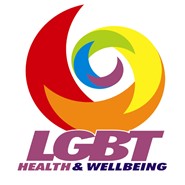This page presents information related to death and bereavement
The Equality Act 2010
Sexual orientation and gender reassignment are protected characteristics under the Equality Act 2010. This means that healthcare providers must not treat patients worse than others due to their sexual orientation or because they are trans.
The “gender reassignment” protected characteristic covers trans people who are proposing to, are undergoing, or have undergone any part of a process for reassigning their sex.
Importantly, it does not require that a person be under medical supervision, or for them to have undergone any specific treatment or surgery, to be protected under the Act.
More information:
The Equality and Human Rights Commission - Gender Reassignment and Sexual Orientation Discrimination
The Gender Recognition Act 2004
This “provides recognition of a person’s acquired gender for all legal purposes [with limited exceptions]. This means that they must be regarded as their acquired gender in all aspects of life and death.” [1]
As permitted by the Gender Recognition Act 2004, a trans person with a Gender Recognition Certificate (GRC) will usually have an updated birth certificate reflecting their gender identity. This also ensures that their marriage and death certificates are recorded accurately. However, even if a trans person does not have a GRC those registering a death can discuss with the Registrar the most appropriate gender to record on the extract of the death certificate supplied by the Registrar which includes a field for gender ('sex'). Note: the Medical Certificate of Cause of Death which provides a record of cause of death and is completed by a medical practitioner does not include a field for gender ('sex').
Trans people may not have a GRC or matching identification documents with their correct (self-described) gender, however this does not make them “less trans” than someone with these. They may also not have undertaken a medical transition; however the Equality Act protects trans people from discrimination regardless of whether or to what extent they have transitioned.
In the context of patient care, section 22 of the Gender Recognition Act 2004 makes it illegal to disclose to any third party that a patient has applied for a GRC. It also makes it illegal to disclose their transgender history, e.g. by revealing their sex assigned at birth. (It should also be noted that it is illegal to disclose patients’ sexual orientations, and LGB patients should not be outed without their consent).
There may be some circumstances under which it is not an offence to disclose protected information. If you are / or think you may be in this situation seek appropriate advice.
GDPR
It is important not to reveal sensitive information about a person e.g. sexual orientation, medical transition treatments and previous names.
[Note: the language used in legislation may not be considered best practice]
Content produced with support from
References


